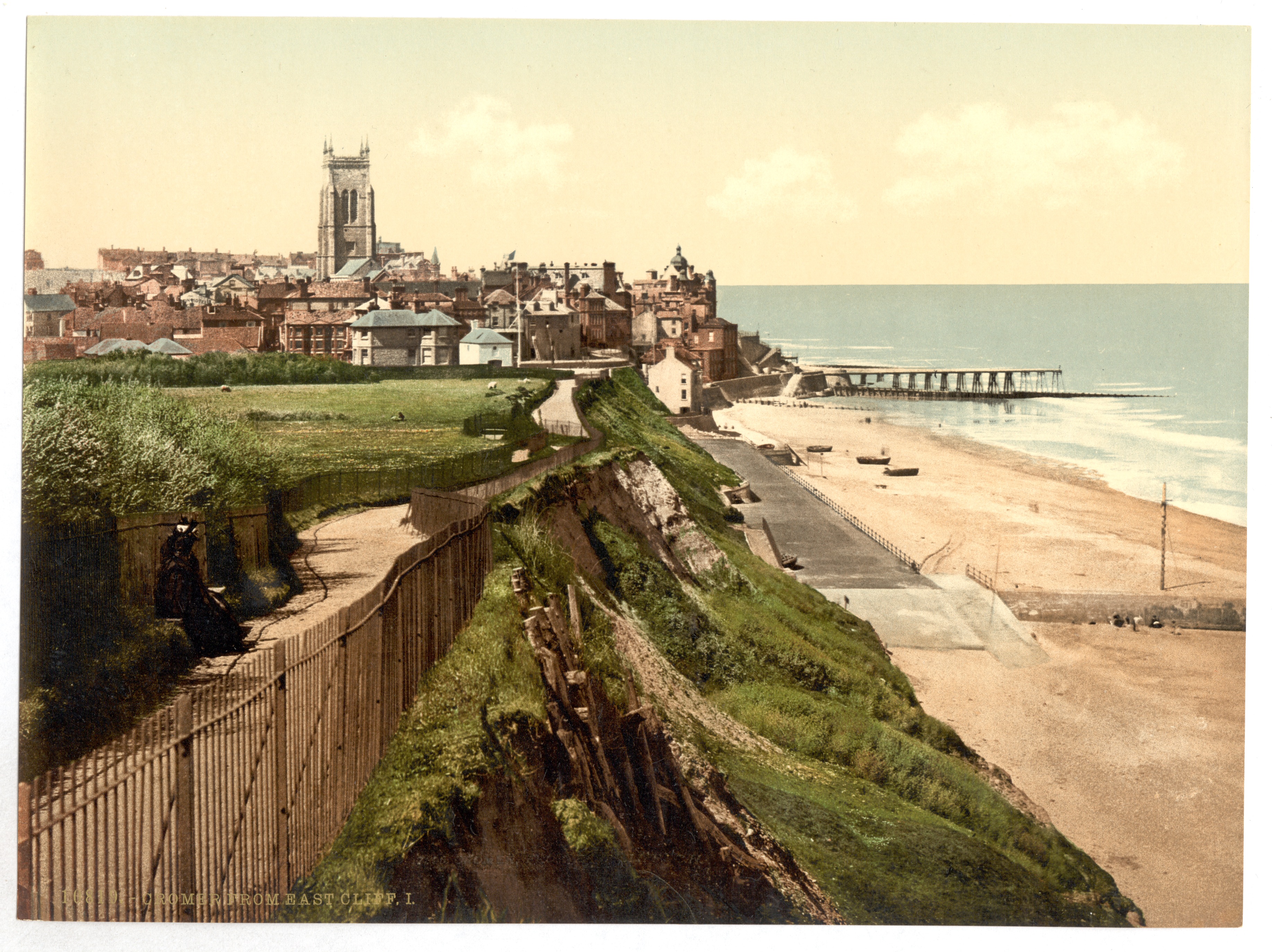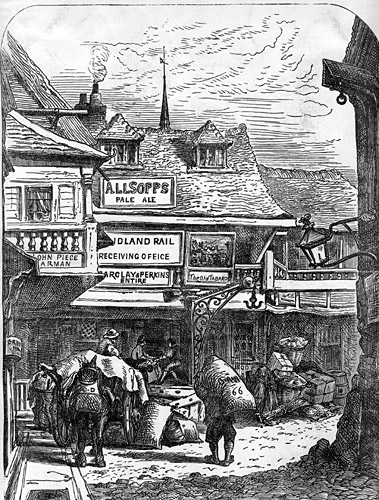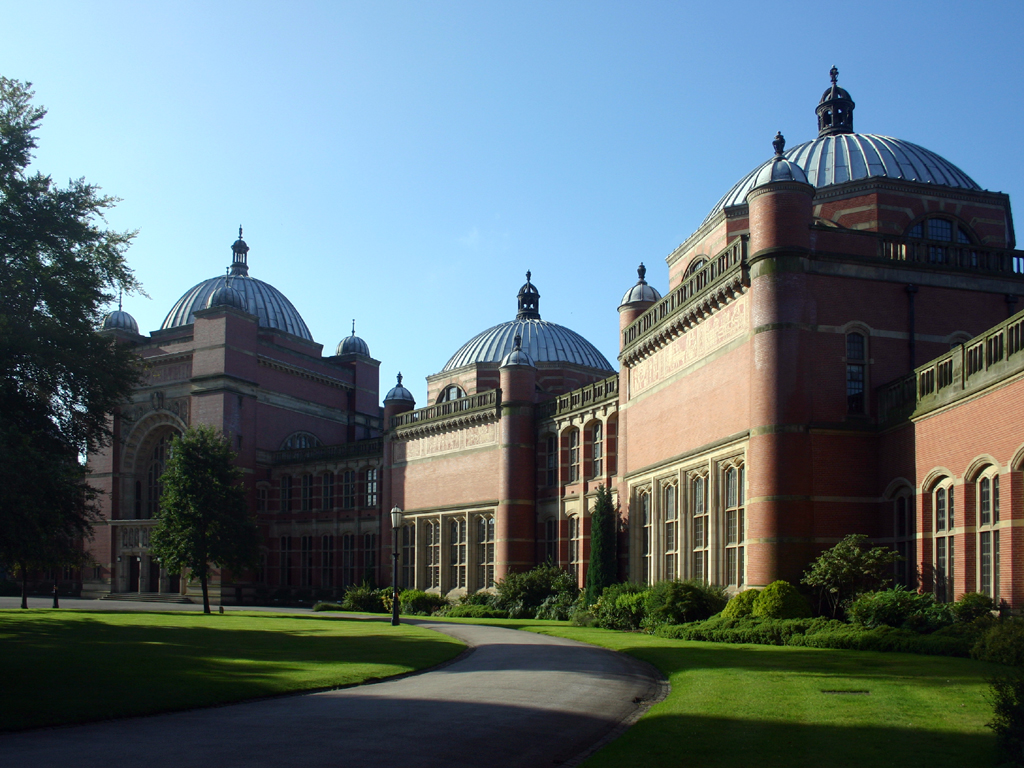|
Cliftonville Hotel, Cromer
The Cliftonville Hotel is an AA 3 star Hotel, and Grade II listed building, located in the English seaside town of Cromer in the county of Norfolk, United Kingdom. Location The hotel stands on the landward side of the A 149 coast road''OS Explorer Map 24 - Norfolk Coast Central''. . on the western outskirts of the town. It has views across the esplanade to the sea, beach and the towns Victorian Pier. The hotel is from Cromer Railway Station. The nearest airport is in Norwich and is south of Cromer. Description The hotel has 30 en-suite bedrooms over three floors, all rooms have been refurbished in 2022/2023. The rooms situated in the east wing are accessible by a lift. On the ground floor there is a reception area, recently refurbished lounge area and a bar & restaurant area. The Ballroom with spring loaded floor and Minstrels' Gallery is available for private hire. History The Edwardian Hotel started out as the Cliftonville boarding house''Pretty Villas & Capacious Hotels ... [...More Info...] [...Related Items...] OR: [Wikipedia] [Google] [Baidu] |
Cromer
Cromer ( ) is a coastal town and civil parish on the north coast of the English county of Norfolk. It is north of Norwich, north-northeast of London and east of Sheringham on the North Sea coastline. The local government authorities are North Norfolk District Council, whose headquarters is on Holt Road in the town, and Norfolk County Council, based in Norwich. The civil parish has an area of and at the 2011 census had a population of 7,683. The town is notable as a traditional tourist resort and for the Cromer crab, which forms the major source of income for local fishermen. The motto ''Gem of the Norfolk Coast'' is highlighted on the town's road signs. History The town has given its name to the ''Cromerian Stage'' or ''Cromerian Complex'', also called the ''Cromerian'', a stage in the Pleistocene glacial history of north-western Europe. Cromer is not mentioned in the ''Domesday Book'' of 1086. The place-name 'Cromer' is first found in a will of 1262 and could mean 'C ... [...More Info...] [...Related Items...] OR: [Wikipedia] [Google] [Baidu] |
Augustus Frederic Scott
Augustus Frederic Scott (1854–1936) a Norwich-based Architect who was born in 1854 in the Breckland village of Rockland St Peter, Norfolk.Augustus Frederic Scott Retrieved 27 January 2013 His work included both and buildings, in addition to several large hotels and many private commissions. Personal life His father was a minister called Jonathan Scott. Followin ...[...More Info...] [...Related Items...] OR: [Wikipedia] [Google] [Baidu] |
Grade II Listed Hotels
Grade most commonly refers to: * Grade (education), a measurement of a student's performance * Grade, the number of the year a student has reached in a given educational stage * Grade (slope), the steepness of a slope Grade or grading may also refer to: Music * Grade (music), a formally assessed level of profiency in a musical instrument * Grade (band), punk rock band * Grades (producer), British electronic dance music producer and DJ Science and technology Biology and medicine * Grading (tumors), a measure of the aggressiveness of a tumor in medicine * The Grading of Recommendations Assessment, Development and Evaluation (GRADE) approach * Evolutionary grade, a paraphyletic group of organisms Geology * Graded bedding, a description of the variation in grain size through a bed in a sedimentary rock * Metamorphic grade, an indicatation of the degree of metamorphism of rocks * Ore grade, a measure that describes the concentration of a valuable natural material in the surroundin ... [...More Info...] [...Related Items...] OR: [Wikipedia] [Google] [Baidu] |
Hotels Established In 1894
A hotel is an establishment that provides paid lodging on a short-term basis. Facilities provided inside a hotel room may range from a modest-quality mattress in a small room to large suites with bigger, higher-quality beds, a dresser, a refrigerator and other kitchen facilities, upholstered chairs, a flat screen television, and en-suite bathrooms. Small, lower-priced hotels may offer only the most basic guest services and facilities. Larger, higher-priced hotels may provide additional guest facilities such as a swimming pool, business centre (with computers, printers, and other office equipment), childcare, conference and event facilities, tennis or basketball courts, gymnasium, restaurants, day spa, and social function services. Hotel rooms are usually numbered (or named in some smaller hotels and B&Bs) to allow guests to identify their room. Some boutique, high-end hotels have custom decorated rooms. Some hotels offer meals as part of a room and board arrangement. In Jap ... [...More Info...] [...Related Items...] OR: [Wikipedia] [Google] [Baidu] |
Hotels In Norfolk
A hotel is an establishment that provides paid lodging on a short-term basis. Facilities provided inside a hotel room may range from a modest-quality mattress in a small room to large suites with bigger, higher-quality beds, a dresser, a refrigerator and other kitchen facilities, upholstered chairs, a flat screen television, and en-suite bathrooms. Small, lower-priced hotels may offer only the most basic guest services and facilities. Larger, higher-priced hotels may provide additional guest facilities such as a swimming pool, business centre (with computers, printers, and other office equipment), childcare, conference and event facilities, tennis or basketball courts, gymnasium, restaurants, day spa, and social function services. Hotel rooms are usually numbered (or named in some smaller hotels and B&Bs) to allow guests to identify their room. Some boutique, high-end hotels have custom decorated rooms. Some hotels offer meals as part of a room and board arrangement. In J ... [...More Info...] [...Related Items...] OR: [Wikipedia] [Google] [Baidu] |
Hotels In North Norfolk
A hotel is an establishment that provides paid lodging on a short-term basis. Facilities provided inside a hotel room may range from a modest-quality mattress in a small room to large suites with bigger, higher-quality beds, a dresser, a refrigerator and other kitchen facilities, upholstered chairs, a flat screen television, and en-suite bathrooms. Small, lower-priced hotels may offer only the most basic guest services and facilities. Larger, higher-priced hotels may provide additional guest facilities such as a swimming pool, business centre (with computers, printers, and other office equipment), childcare, conference and event facilities, tennis or basketball courts, gymnasium, restaurants, day spa, and social function services. Hotel rooms are usually numbered (or named in some smaller hotels and B&Bs) to allow guests to identify their room. Some boutique, high-end hotels have custom decorated rooms. Some hotels offer meals as part of a room and board arrangement. In J ... [...More Info...] [...Related Items...] OR: [Wikipedia] [Google] [Baidu] |
Hotels In Cromer
A hotel is an establishment that provides paid lodging on a short-term basis. Facilities provided inside a hotel room may range from a modest-quality mattress in a small room to large suites with bigger, higher-quality beds, a dresser, a refrigerator and other kitchen facilities, upholstered chairs, a flat screen television, and en-suite bathrooms. Small, lower-priced hotels may offer only the most basic guest services and facilities. Larger, higher-priced hotels may provide additional guest facilities such as a swimming pool, business centre (with computers, printers, and other office equipment), childcare, conference and event facilities, tennis or basketball courts, gymnasium, restaurants, day spa, and social function services. Hotel rooms are usually numbered (or named in some smaller hotels and B&Bs) to allow guests to identify their room. Some boutique, high-end hotels have custom decorated rooms. Some hotels offer meals as part of a room and board arrangement. In J ... [...More Info...] [...Related Items...] OR: [Wikipedia] [Google] [Baidu] |
Old Town Hall, Cromer
The Old Town Hall is a former events venue in Prince of Wales Road, Cromer, Norfolk, England. The structure, which is currently used for retail purposes, is a grade II listed building. History In the mid-19th century, a group of local businessmen decided to form a company to raise funds for the erection of an events venue in the town. The site they selected was on the west side of Prince of Wales Road and the foundation stone was laid by Mrs Benjamin Bond-Cabbell of Cromer Hall on 3 January 1890. The building was designed by George Skipper in the Queen Anne style, built in red brick with a stucco finish by Chapman and Son of Norwich and was completed later that year. The design involved a symmetrical main frontage with five bays facing onto Prince of Wales Road; the central bay, which slightly projected forward, featured, on the ground floor, a round headed doorway and, on the first floor, a four-part window flanked by fluted pilasters supporting a modillioned pediment with a ... [...More Info...] [...Related Items...] OR: [Wikipedia] [Google] [Baidu] |
George Skipper
George John Skipper (1856–1948) was a leading Norwich-based architect of the late Victorian and Edwardian period. Writer and poet, John Betjeman said of him "he is altogether remarkable and original. He was to Norwich what Gaudi was to Barcelona" He is regarded as an important Modern Style (British Art Nouveau style) architect. Life Skipper was born in the Norfolk market town of East Dereham, the son of Robert Skipper a carpenter and builder. Skipper was educated at Bracondale School, Norwich and later went on to attend the Norwich School of Art for one year. He trained as an architect in London and returned to work in his father's firm of builders in Norwich. After setting up his own business in 1879 he was commissioned to design the town hall at Cromer and, subsequently, several seaside hotels in the town. [...More Info...] [...Related Items...] OR: [Wikipedia] [Google] [Baidu] |
Nikolaus Pevsner
Sir Nikolaus Bernhard Leon Pevsner (30 January 1902 – 18 August 1983) was a German-British art historian and architectural historian best known for his monumental 46-volume series of county-by-county guides, ''The Buildings of England'' (1951–74). Life Nikolaus Pevsner was born in Leipzig, Saxony, the son of Anna and her husband Hugo Pevsner, a Russian-Jewish fur merchant. He attended St. Thomas School, Leipzig, and went on to study at several universities, Munich, Berlin, and Frankfurt am Main, before being awarded a doctorate by Leipzig in 1924 for a thesis on the Baroque architecture of Leipzig. In 1923, he married Carola ("Lola") Kurlbaum, the daughter of distinguished Leipzig lawyer Alfred Kurlbaum. He worked as an assistant keeper at the Dresden Gallery between 1924 and 1928. He converted from Judaism to Lutheranism early in his life. During this period he became interested in establishing the supremacy of German modernist architecture after becoming aware of Le ... [...More Info...] [...Related Items...] OR: [Wikipedia] [Google] [Baidu] |
Edwardian
The Edwardian era or Edwardian period of British history spanned the reign of King Edward VII, 1901 to 1910 and is sometimes extended to the start of the First World War. The death of Queen Victoria in January 1901 marked the end of the Victorian era. Her son and successor, Edward VII, was already the leader of a fashionable elite that set a style influenced by the art and fashions of continental Europe. Samuel Hynes described the Edwardian era as a "leisurely time when women wore picture hats and did not vote, when the rich were not ashamed to live conspicuously, and the sun really never set on the British flag." The Liberals returned to power in 1906 and made significant reforms. Below the upper class, the era was marked by significant shifts in politics among sections of society that had largely been excluded from power, such as labourers, servants, and the industrial working class. Women started to play more of a role in politics. Roy Hattersley, ''The Edwardians'' (2004). ... [...More Info...] [...Related Items...] OR: [Wikipedia] [Google] [Baidu] |






